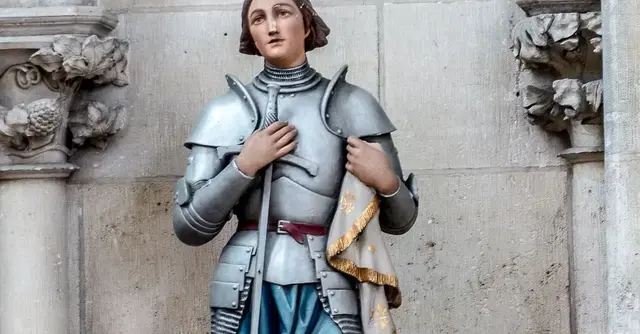Middle Ages: Dark Ages Defense
One of the great black legends that weigh on the Catholic Church is the accusation of having created the Dark Ages defense the dominance that it exercised during the Middle Ages with centuries of ignorance, fanaticism and the brake on scientific and intellectual progress.
This perception of the Middle Ages is still present in millions of people and even in school textbooks, despite the fact that numerous historians have evidenced the enormous advances that occurred in these centuries and that shaped Western society.
Great fault lies with thinkers of the Enlightenment and later, who tried to boost their ideas compared to what was done in previous centuries. Hence, this “Dark Age” was succeeded by the Renaissance and the Age of Enlightenment, in clear contrast to the Middle Ages.
Let’s find out who came up with this concept. These centuries, according to Voltaire, were a period in history during which “barbarism, superstition, and ignorance covered the face of the globe.” As Rousseau noted, “Europe had returned into the barbarism of the ancient ages” throughout the Middle Ages. A few centuries ago, the situation faced by the people in this region of the world was worse than ignorance. Or Edward Gibbon, who asserted that “barbarity and religion” had triumphed when Rome fell. And in each of them, one could see the hostility toward the Church that was actually quite important to these decades’ advancements.
However, Rodney Stark, a doctor of sociology and renowned historian, has debunked this myth about the Church in the Middle Ages in various publications, most recently in False Testimony.
Stark, who holds a degree from the University of Berkeley in California and has written forty books, has also worked as a researcher at the Survey Research Center and the Center for the Study of Law and Society. At the University of Washington, he later held the positions of professor of sociology and comparative religion. His employment at Baylor University dates back to 2004. Stark has held leadership positions in both the Society for the Scientific Study of Religion and the Association for the Sociology of Religion. For his outstanding contributions, he has won numerous national and international honours. He was raised as a Lutheran and has declared himself to be agnostic, but more recently, he has labelled himself a “independent Christian.”
According to Professor White, a professor of mediaeval history at Priceton, Stanford, and the University of California, Europe made the major technological advance that set it apart from the rest of the world during these ostensibly dark ages.
Technological progress
At this point the historian focuses on some very specific advances made during the Middle Ages that transformed the lives of people at that time and considerably improved the lives of subsequent generations.
He gives the example of the use of water and wind as sources of energy. The Romans preferred manual labor done by slaves. A ninth-century inventory showed that one-third of the estates along the Seine River in Paris owned watermills, most on Church property. In 1086 in present-day England the existence of at least 5,624 operating watermills was reported, one for every 50 families. On the other hand, in this “Dark Age” numerous dams or reservoirs were built. But if this happened with the water, the same happened with the wind and the thousands of windmills that appeared throughout Europe.
moral progress
All classical societies were slaveholders, including many of the Indian ones before Christopher Columbus arrived in America in 1492. But Stark remembers that in the midst of this universal slavery “only one civilization ever rejected the servitude of human beings: Christianity.”
The first time that slavery was truly abolished throughout the world was not in the Renaissance or the Enlightenment, but during this supposed Dark Age, the historian says. This was precisely carried out by leaders of the Church who for the first time granted the sacraments – except that of priestly ordination – to all slaves.






